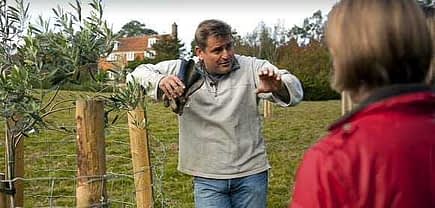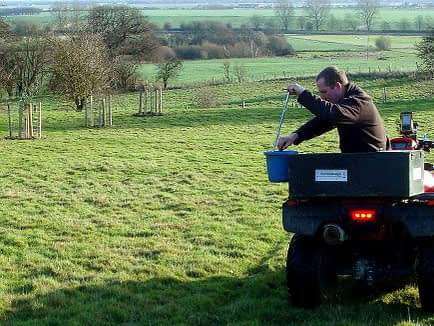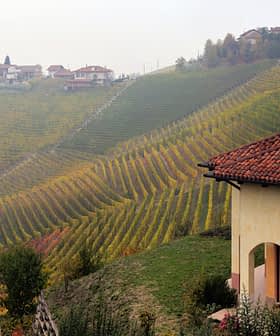The United Kingdom might not be the first location for a commercial olive grove that springs to mind, but Neil Davy, proprietor of Huggit’s Farm in Kent, has other ideas.
Kent, a county in the south of England, has one of the warmest and driest climates in the country. And this is one of the reasons Mr. Davy is confident that olive trees might just have a better than average chance of thriving in an area that’s known as ‘The Garden of England.’
The trees chosen are a mixture of both self-fertile and pollinators, with the idea that this will help to increase the amount of oil yielded from the fruits. All have been specifically planted because of their resilience to the cold, as well as other considerations such as oil content, distinct flavors and resistance to disease. The varieties of olive trees include Frantoio, Picholine and Pendolino.
Snow and Gales
Huggit’s Farm’s olive tree venture began in 2010. After some initial test planting of trees, the winter of 2010/11 proved to be unseasonably harsh, with snow blanketing the countryside. This was followed by a dry and warm summer, and this winter has, so far, been extremely mild.
However, the biggest concern is the stress caused to the trees by wind. The site is located next to ancient sea cliffs and already this winter has been battered by winds of up to 60 mph.
But, as Mr. Davy says, “Although wanting all our trees to thrive, we are really hoping that as we conduct our trials, Mother Nature delivers the worst she can muster to put the trees through their paces.”
“Of the six cultivars we have planted, a couple of trees do look to be struggling, some Leccino and Frantoios particularly. However, other trees of the same cultivar are thriving, so we draw some consolation that it may be those individual trees, rather than the variety, that could struggle.”
Of course, only time will tell if the trees will manage to thrive here. Climate change is very real, and the UK is growing crops that once would never have been considered a possibility. So if the experiment goes to plan, it appears that olive groves, once a sight only seen in Mediterranean climates, could well become a permanent feature of the English countryside.










